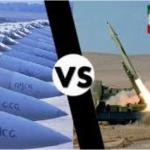 This is a fascinating scenario for pondering Christian ethics and American law and rights. Stephen Coll, at The New Yorker, is on the side of those who think the President has extended his power too much and sets a precedent for further instances.
This is a fascinating scenario for pondering Christian ethics and American law and rights. Stephen Coll, at The New Yorker, is on the side of those who think the President has extended his power too much and sets a precedent for further instances.
What do you think? Legal? Constitutional? Right?
On September 30, 2011, in a northern province of Yemen, Anwar al-Awlaki, an American citizen and a senior figure in Al Qaeda in the Arabian Peninsula, finished his breakfast and walked with several companions to vehicles parked nearby. Before he could drive away, a missile fired from a drone operated by the Central Intelligence Agency struck the group and killed Awlaki, as well as a second American citizen, of Pakistani origin, whom the drone operators did not realize was present.
President Barack Obama had personally authorized the killing. “I want Awlaki,” he is said to have told his advisers at one point. “Don’t let up on him.” The President’s bracing words about a fellow American are reported in “Kill or Capture,” a recent and important book on the Obama Administration’s detention and targeted-killing programs, by Daniel Klaidman, a former deputy editor of Newsweek.
With those words attributed to Obama, Klaidman has reported what would appear to be the first instance in American history of a sitting President speaking of his intent to kill a particular U.S. citizen without that citizen having been charged formally with a crime or convicted at trial.
The due-process clause of the Fifth Amendment prohibits “any person” from being deprived of “life, liberty, or property without due process of law.” Obama authorized the termination of Awlaki’s life after he concluded that the boastful, mass-murder-plotting cleric had, in effect, forfeited constitutional protection by waging war against the United States and actively planning to kill Americans. Obama also believed that the Administration’s secret process establishing Awlaki’s guilt provided adequate safeguards against mistake or abuse—all in all, enough “due process of law” to take his life.















